Global Governance
Your Present Location: PROGRAMS> Global Governance-
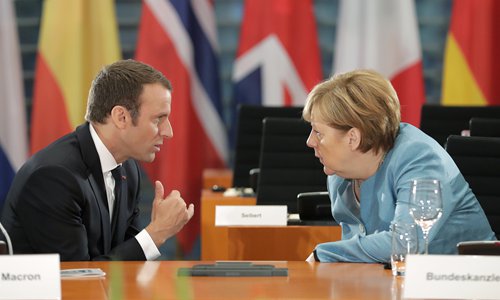
Xi to push for a united G20 at summit in Hamburg
China, Germany to put pressure on US over climate change: analysts
2017-07-03 -

He Yafei: “Belt & Road” vs. Liberal Order
This is really the best of times and worst of times. With the rise of a large number of developing and emerging countries and relative decline of “advanced countries”, the global convergence of power is accelerating and the balance of power continues to tip in favor of the developing countries.
2017-06-14 -
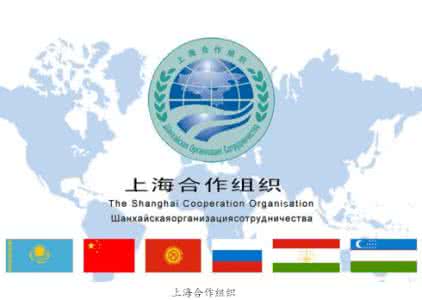
SCO will not be used by China to intervene in Indo-Pakistan disputes
The entry of India and Pakistan into the Shanghai Cooperation Organization (SCO) is likely to bring a series of changes to the organization and even to the fragile geopolitical landscape of Asia. Will the SCO offer a platform to allow member countries, China and Russia included, to mediate in disputes between India and Pakistan? How will the SCO’s expansion affect India’s attitude toward China’s Belt and Road (B&R) initiative?
2017-06-12 -
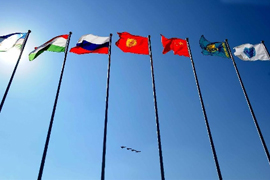
SCO to expand as Xi attends summit
The Shanghai Cooperation Organization (SCO) will accept India and Pakistan as full members, which will not have an impact on the unity of the organization, but the SCO will offer a platform for New Delhi and Islamabad to solve their disputes between themselves, experts said.
2017-06-08 -

He Yafei: Sino-US relations crucial to global peace and growth
Many historic changes are due to globalization and global governance, with uncertainties rising in geopolitics adding to the tensions between major powers. Therefore, many ask the question like what could be done to re-calibrate global governance to fix the woes plaguing the world economy.
2017-06-08 -

Reactions to G7 summit outcome mixed
Reactions were mixed to a final statement by Group of Seven (G7) leaders at the close of their two-day summit in the Italian town of Taormina on Saturday.
2017-06-06 -
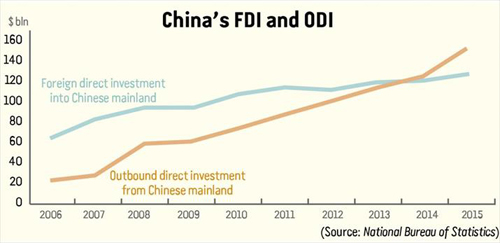
Liu Ying: More Globalized and Opened Up
The Silk Road Economic Belt and 21st-Century Maritime Silk Road Initiative (Belt and Road Initiative) has received enthusiastic support from more than 100 countries and international organizations since being put forward, and over 40 have signed more than 50 cooperation agreements or memorandums with China aimed at pushing forward its development.
2017-05-23 -
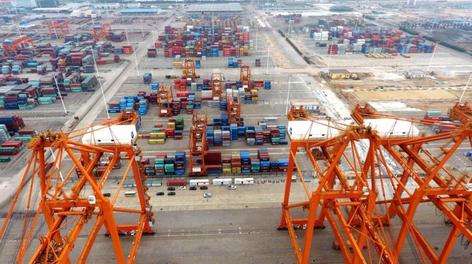
China`s global vision
A new form of globalization based on investment in infrastructure and greater connectivity between countries has received the backing of more than 100 countries.
2017-05-22 -
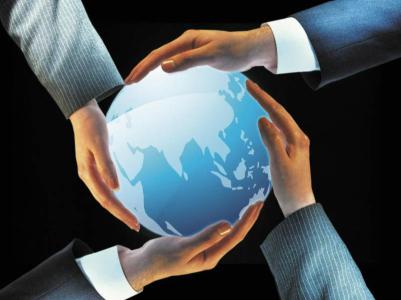
He Yafei: China`s role in steering the future of globalization
Globalization stands at a crossroads, making it necessary for us to fully comprehend the trends before drafting diplomatic policies.
2017-05-02 -
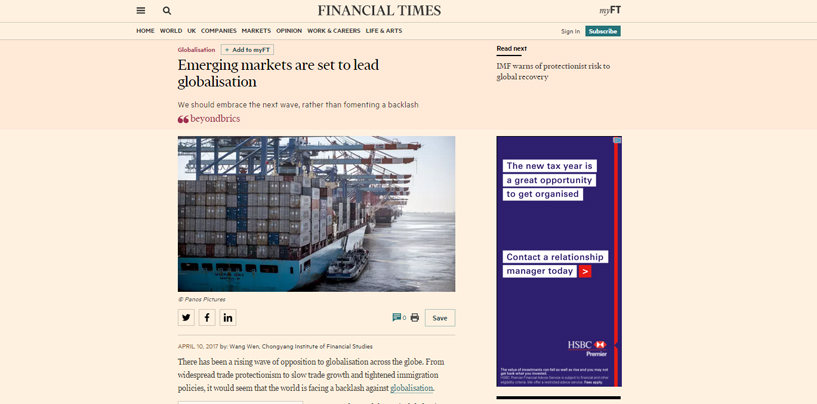
Wang Wen: Emerging markets are set to lead globalisation
Data and theoretical deduction tell a different story: economic globalisation is still the norm. In fact, the engine of globalisation has shifted from developed to emerging economies. Therefore, the latter should continue to open up their markets and seize the opportunities the next round of globalisation will bring.
2017-04-13 -
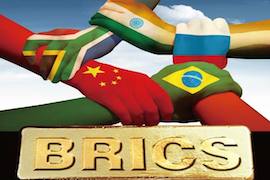
Priyanka Pandit: BRICS, a new trend in multilateralism?
One of the most significant contemporary developments in international politics involves the growing importance of emerging powers within global governance. The emerging powers such as China, India, Brazil and Russia, already wield considerable influence in their own regions and have expanded their roles in various multilateral institutions such as the G20, the India-Brazil-South Africa (IBSA) Dialogue Forum, the Brazil, South Africa, India, China (BASIC) group of countries, and the BRICS.
2017-03-24 -

Experts: Time for China to play bigger role in global governance
China should play a more active role in global affairs, said observers at a high-level forum held earlier this week in Beijing.
2017-03-17 -
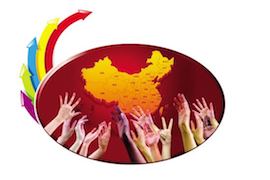
China pushes for fair, inclusive global governance
During China`s annual parliamentary and political advisory sessions, discussions are not just confined to domestic issues, but also focus on China`s active involvement in global governance.
2017-03-15 -
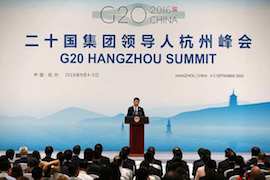
Liu Zongyi: G20 plays a key role in sustainable development
G20 plays a significant role in achieving sustainable development. But, cooperation among individual member states is needed. For the SDGs, countries should make joint efforts at the domestic and international level to implement the 2030 agenda.
2017-02-08 -
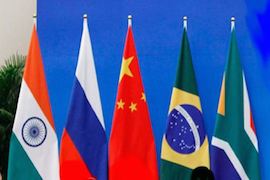
Council set up to facilitate BRICS think tank cooperation
Cooperation between think tanks in the BRICS nations is to play a growing role in facilitating the bloc`s global governance efforts, agreed representatives attending the establishment of the China Council for the BRICS Think Tank Cooperation (CCBTC) in Beijing on Jan. 11.
2017-01-13 -
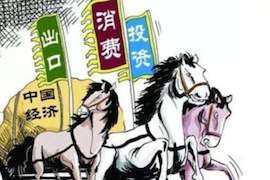
China plays constructive role in global economic governance
China played a constructive role in improving global economic governance to realize win-win cooperation and a more reasonable governance structure in 2016.
2017-01-04 -
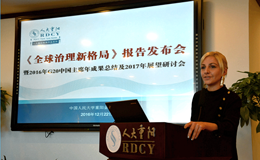
G20 should enhance global governance amid uncertainty
A report released Thursday (Dec. 22) here in Beijing, China’s G20 Year and the New Paradigm, by Feride Inan, a visiting scholar of Chongyang Institute for Financial Studies, Renmin University of China (RDCY), cited contributions of China and other participants in this year’s Hangzhou summit.
2016-12-23 -
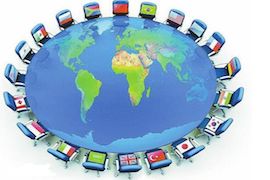
Pang Zhongying: What is China`s role in global governance?
With global governance struggling to deal with increasingly thorny issues, such as Brexit and the sluggish global economic recovery, globalization has been in retreat this year. Given this fact, China`s intensified efforts to engage in global governance seem like a silver lining.
2016-12-21 -
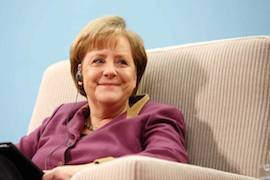
No return to pre-globalization world: German chancellor
German Chancellor Angela Merkel has reiterated her support for globalization as Germany assumes Group of 20 presidency, saying that there will be no return to a pre-globalization world.
2016-12-08 -
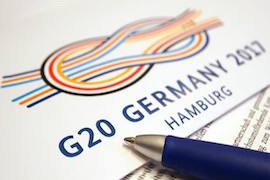
Political changes in the West a challenge for Germany at G20 helm
Germany, the European Union`s largest economy, took over the presidency of the G20 on Dec 1 and is preparing to host the group`s 12th summit in Hamburg next summer, building on the results of the summit in Hangzhou, East China`s Zhejiang province, in September.
2016-12-06
























































































 京公网安备 11010802037854号
京公网安备 11010802037854号





